Desalegn Tegegne is a research officer at the International Water Management Institute (IWMI), and based in the Nile Basin and East Africa Office, Addis Ababa, Ethiopia. He joined the Feed the Future Innovation Lab for Small Scale Irrigation (ILSSI) capacity development program as a graduate student in 2015, while he completing his MSc degree at Arba Minch University. ILSSI supported his MSc thesis, “Assessment of water demand, water and crop productivity of the selected fodder varieties under small scale irrigation using wetting front detectors”.
What did you learn from the research you undertook on the use of technologies to improve water productivity on selected fodder crops?
Although irrigation could potentially boost the production of livestock fodder, this practice is not common in Ethiopia. Therefore, we need to integrate fodder production with crop production to improve the livelihoods of the rural poor. Most of the time, farmers face a problem of not having enough fodder to feed their cattle. At the end of dry season, when it is time for farmers to plow their fields, draft animals are weak due to feed shortages. However, feed shortages occur not only during the dry season, but all year. At the same time, the potential irrigable land is underutilized due to a scarcity of surface water, but despite the presence of shallow groundwater.

To overcome these challenges, IWMI—under the ILSSI project—has identified and piloted water-lifting technologies for small scale irrigators as well as irrigation-scheduling technologies for irrigated fodder production in accordance with the available water sources. Farmers who used the on-farm water management technologies, such as wetting-front detectors, saved on water for irrigation, while improving their fodder crop and water productivity. According to my research findings, providing appropriate water management advice needs to be combined with information on appropriate water-lifting devices, as a function of the available water resources.
How, in your view, can innovative technologies such as wetting-front detectors, support farmers to irrigate more and more efficiently?
Proper on-farm irrigation practices improve the yield per unit area of land and per unit of water applied, because they facilitate equal water distribution and uniform crop growth, while preventing drainage and nutrient leaching and loss. In this way, technologies such as wetting-front detectors can guide farmers’ irrigation and in that way improve crop and water productivity.
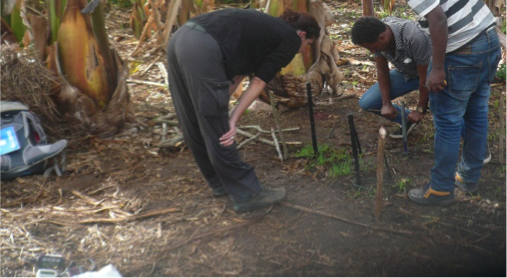
Installation. 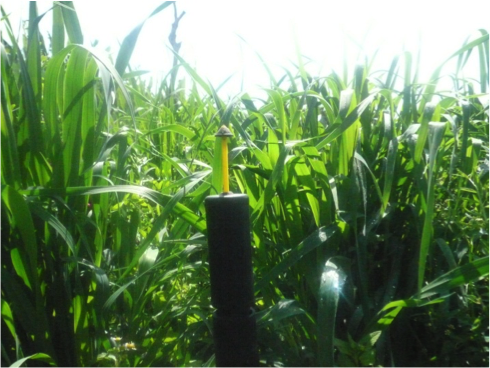
Wetting-front detector. 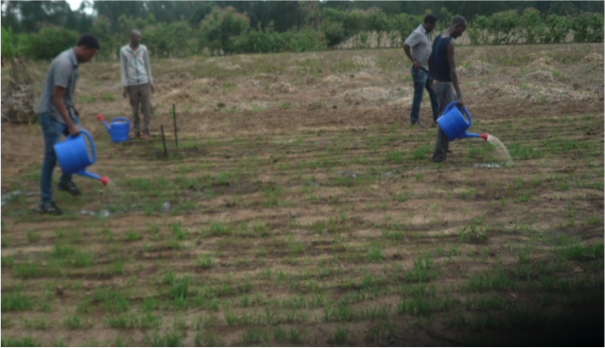
Irrigating fodder crops. 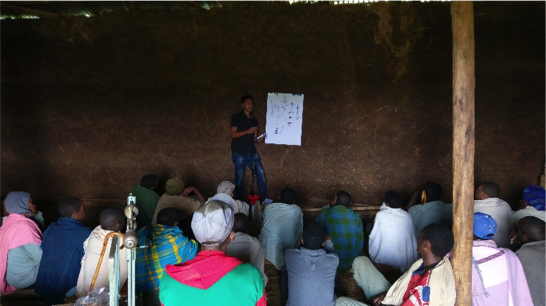
Farmer training. 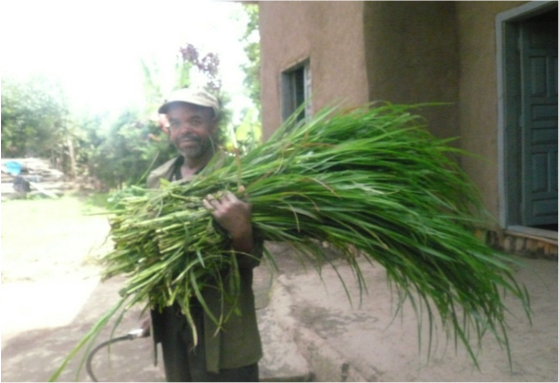
Harvested fodder crops, ready for livestock.
How have you applied this learning and how does it influence your current work?
Given that my educational background is in water resources, irrigation management, and engineering, working on irrigation technologies is interesting for me. The technologies we used for field experiments were simple to use and they helped farmers to manage their irrigation. That’s why the field experiments were successful. My current work in IWMI focuses on analyzing soil moisture and nutrients as well as evaluating crop and water productivity of different on-farm water management tools. In that way, all the practical lessons I got while I did my MSc under the ILSSI’s capacity development program were very useful for my current work.
What is your view on the role of irrigation—especially small scale—as climate change impacts intensify?
Irrigation is one way to improve farmers’ resilience under changing climatic conditions, through increasing food production. Using available surface water and groundwater resources, small scale irrigation can positively contribute to intensifying crop–livestock mixed farming systems. It is also a means of income generation for the smallholders.
What do you hope to achieve as a result of your current work?
In my current work from IWMI, I am planning to scale out the on-farm water management technologies, such as wetting-front detectors and chameleon sensors. These technologies are essential for smallholder farmers to improve their irrigation efficiency and increase crop and water productivity. For effective scaling of best on-farm water management practices, I will train farmers and extension agents.


